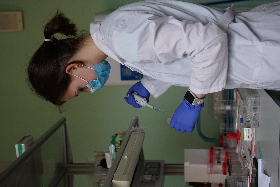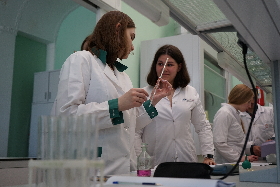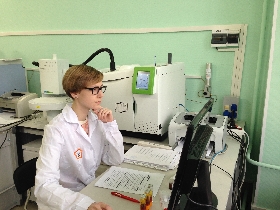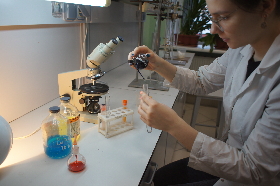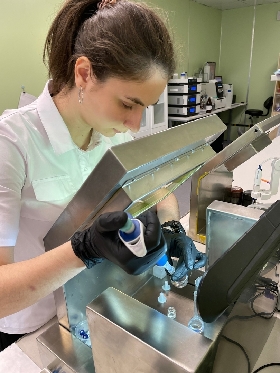Biotechnology
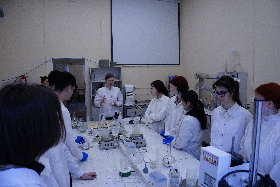
Accreditation. State accreditation. Professional-public accreditation and international accreditation (the National Center for Public Accreditation).
Achievements. The program has been recognized many times as one of the best educational programs of innovative Russia.
Teaching staff. Training is provided by 15 departments and three research and education centers (RECs) and over 150 teachers, 80% of whom hold academic degrees of Doctors and Candidates of Sciences. The degree-granting department is the Department of Biotechnology.
Learning outcomes. Students learn how to create biological object cultivation technologies to biosynthesize various products; methods for extracting and purifying biologically active substances (BAS) from organs and tissues of mammals and plants.
Facilities and resources. The departments have state-of-the-art laboratory analytical and process equipment. To activate research, the university established the Center for Molecular Cell Technologies. The university established the Research and Education Center of Molecular and Cell Technologies in cooperation with the Saint Petersburg Research Institute of Vaccines and Serums and the Biocad innovative biotechnology company. The departments and RECs participate in practical training of students.
Research. Teachers and students conduct research on the development of biological object cultivation technologies to biosynthesize various products; methods for extracting and purifying biologically active substances (BAS) from organs and tissues of mammals and plants as well as produced by microbiological synthesis; on obtaining and studying the pharmacological effect of BAS to produce innovative medicines.
Competitive advantages. The key feature of the educational program is the development of competencies that allow graduates to carry out their professional activities in the field of manufacturing technology of biotechnological and immunobiotechnological drugs, using microbiological synthesis, cell and genetic engineering, biocatalysis, and nanobiotechnologies.
Career prospects and employment. Among graduates are specialists of biotechnology and immunobiotechnology companies and enterprises at different levels, staff of R&D departments and laboratories, microbiology and analytical laboratories, quality assurance and control specialists at pharmaceutical and food industry enterprises, process designers at companies designing biotechnology/immunobiotechnology production facilities and microbiology laboratories.
